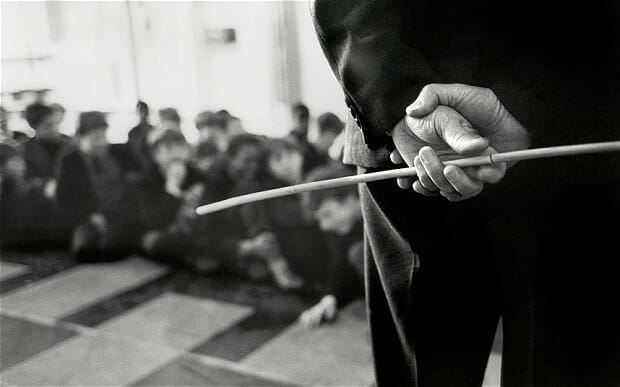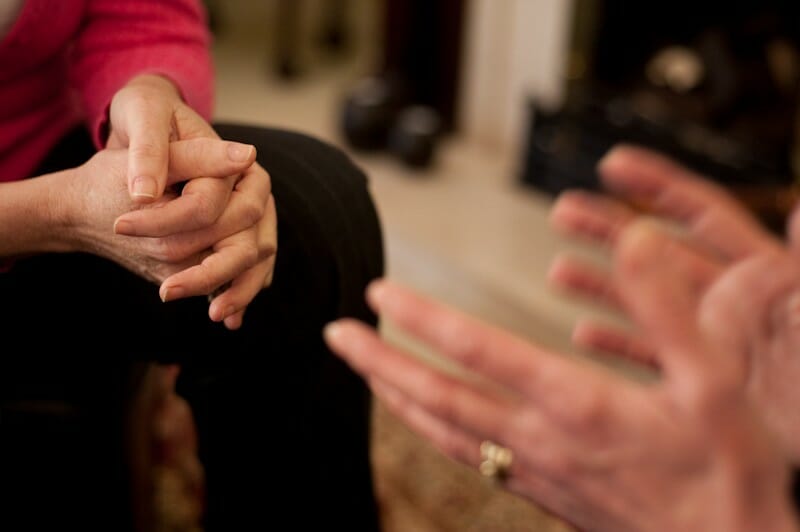Who hasn’t been caned by their parents? As Malaysians, we share a rich history of local food, multiple languages and dialects, and being caned kao-kao by our parents and teachers.
Sometimes, caning gets out of hand (pun intended) when a teacher applies excessive force, like in the recent case of a girl who was caned by her teacher for calling him an ah qua (Hokkien for a homophobic slur).
But is caning an accepted way of life or a hideous ordeal for most Malaysians?
We decided to ask regular Malaysians’ experiences with caning to find out.
John, 31
I have had a very bad experience about caning. I was from Sekolah Rendah Jenis Kebangsaan (Cina) and I used to always be the first in class.
My form teacher at standard 6 was also my mathematics teacher. She expected us to score 100 on every mathematics test and examination.
She would cane those who scored under 100 — 1 stroke for every one missing score.
In one of the exams, I scored only 80. She caned me 20 times. I couldn’t write properly for the next 3 days. There are also other students who scored less than me, also got caned terribly.
 [image source: The telegraph]
[image source: The telegraph]
We had some funny tricks to make the caning ordeal less painful.
Some of us will put glue on our palms, so it formed another layer. Some of us will make sure we don’t get caned on the dominant hand, so we could continue to write. Some of us will rub our palms so they are warmer, and it felt less painful.
Also when I was in Sekolah Menengah Kebangsaan, during assembly my discipline teacher would cane our buttocks (both boys and girls) for being late on the stage in front of everyone.
On the whole, I think the appropriate amount of caning is necessary, as long as it’s reasonable, and as long as the students see it coming. For example, they should be told: ‘if you forget to bring your book again next time, you will be caned.’
The students should understand why they got punished and what are they expecting for their punishment. After all, self-management is part of learning in primary school.
Carla*, 26
When I was younger, my parents used to cane me a lot and I thought most of my mental issues stemmed from the physical abuse.
Then I met my ex, whose mother used to cane him and by all normal standards, he was totally fine even though he went through more or less the same thing.
After talking to him about it and letting the situation sit a bit, I realized the difference between our two situations was the way our parents framed the punishment.
His parents would always take the time to sit with him afterwards and explain that it was his behaviour that led to the punishment.
My parents wouldn’t do that. The beatings always got very violent with a lot of derogatory language. Growing older I internalized the really negative voices and experiences and there are a few specific shame triggers that still pop up.
It took me a long time to get over it. And therapy, lots of therapy. But I’m better now, thank goodness. And a whole lot wiser.
 [image source: www.pentagonconsultants.in]
[image source: www.pentagonconsultants.in]
Zhi Yu, 28
Actually, I’ve been through it and found it useful. Especially when children below a certain age or when hit with a certain hormonal rush, cannot be reasoned and properly argued with or explained to. So “learning by association” is useful.
I’ve been exposed to Western points of view and my classmates in university who’ve never been physically punished turn out okay, so I understand how the no-caning viewpoint comes about.
For Christians in the U.S., they participate in an ecosystem that regulates / advocates good behavior, so the absence of corporal punishment is okay.
In M’sia at least, for the Chinese or even the Indian community, there are no such ecosystems in place. Which is why parents often resort to caning.
In Sekolah Jenis Kebangsaan (Cina) where students number more than 50 per teacher, this is especially important to maintain discipline.
When you punish one student to serve as a lesson for the remaining 49, order is maintained in the classroom.
That said, because of this strict classroom culture, Chinese schools groom kids that are too obedient, not adventurous or creative enough. I’d say there’s no straight answer.
Jolyn*, 25
I went to a Sekolah Jenis Kebangsaan (Cina). I definitely got caned, I was real irresponsible haha! I didn’t do homework a LOT.
Back then, we just did homework to not get caned. We didn’t care about learning at all. Teachers didn’t care that we did or didn’t learn as long as homework was done.
That’s why I think caning is both ineffective and counterproductive. It’s a temporary fix to a behavioural issue.
Caning also enforces the parent-child boundary. It makes you feel afraid of your parent, and so it’s mostly ruling by fear and doesn’t foster trust between parent and child.
So children become afraid to tell parents things because they don’t trust them.
Speaking more subjectively, I’m Malaysian Chinese. Malaysian Chinese are a generation built on caning. We can’t express affection with our parents, we don’t understand how to have casual relationships with them, and we won’t tell them personal things.
 [image source: Newslaundry.com]
[image source: Newslaundry.com]
Jason*, 27
There was a time when I was 13 in Secondary school, I forgot to bring my textbook for Malay class.
I was caned and required to stand outside of the class for half an hour, being shamed publicly. My homework got thrown outside of the classroom.
That incident might have helped me remember to bring yet another textbook in my heavy bag next time.
But it felt like a missed opportunity to ignite my passion for the Malay language.
In my opinion, caning produces only immediate changes in behaviour. I felt that my teachers used caning to boost the reputation of the school.
But getting the social and emotional aspects takes a lot of work and training for teachers to apply in practice.
Fundamentally, it depends on what we hire a school for.
Are we empowering students to feel successful so that they can adapt well in the 21th century workplace? Or getting good grades to make parents prouder?
Khairie, 34
My only experience with caning was by my late mom – she was a total Asian tiger mom.
In school I never did anything bad that was disciplinary caning, but we did have that.
I think the caning itself wasn’t that painful, it was more the ritual with my late mom – when she caned me it meant that what I did was serious enough to warrant that. So the emotional toll was bigger than the physical.
The one time she caned me that I remember was because I had forgotten repeatedly to bring back my Tupperware from school and kept losing them.
I would say that the impact of caning on my life is a non-factor for me – but I think it can’t be taken in isolation.
A child’s overall development isn’t solely linked to caning or non-caning.
At the end of the day, are you being a good parent in all other aspects? If you are, then your child will turn out to be a well-adjusted human being, rotan or no.
Gwen, 25
I grew up in fear and expectation of it – my parents were quite creative, didn’t use only canes (mom once hit me until the hanger broke). I don’t remember much honestly, though I guess I enjoyed tempting fate too much coz I turned out to be quite the rebel.
For me, the intention behind the act of caning is to punish and deter bad behavior. This is to teach children consequences so they can make better, more moral decisions in the future.
However, as with most traditions, the intention got lost in translation along the way. So our parents/ teachers’ generation inherited the action of caning without understanding or communicating the reason behind it, making the effect temporary, and therefore ineffective.
Then again, it’s not like our parents and teachers were the result of wholesome parenting anyway, haha, so you can’t really blame them.
What are your experiences with caning? Share them here!
For more articles on teachers and school life, read These Four Malaysian Teachers Went the Extra Mile for Their Students: Here Are Their Stories, and I Used to Hate Having Strict Parents, Here’s Why I Appreciated Them as I Grew Older.
*Some of our contributors’ names have been changed at their request.

More from Real People
‘A RM100 fee cost a company 5 years of revenue’ shares M’sian
This story is about a Malaysian who learned that bureaucracy can be defeated simply by not arguing with it.A billing …
‘I quiet-quit, upskilled, and tripled my salary,’ shares M’sian engineer
This story is about a Malaysian who learned that loyalty without leverage leads nowhere in the corporate world.After years of …
‘I did everything right, and it still wasn’t enough’ shares M’sian graduate
This story is about a Malaysian graduate navigating big dreams in a job market where a degree no longer guarantees …














